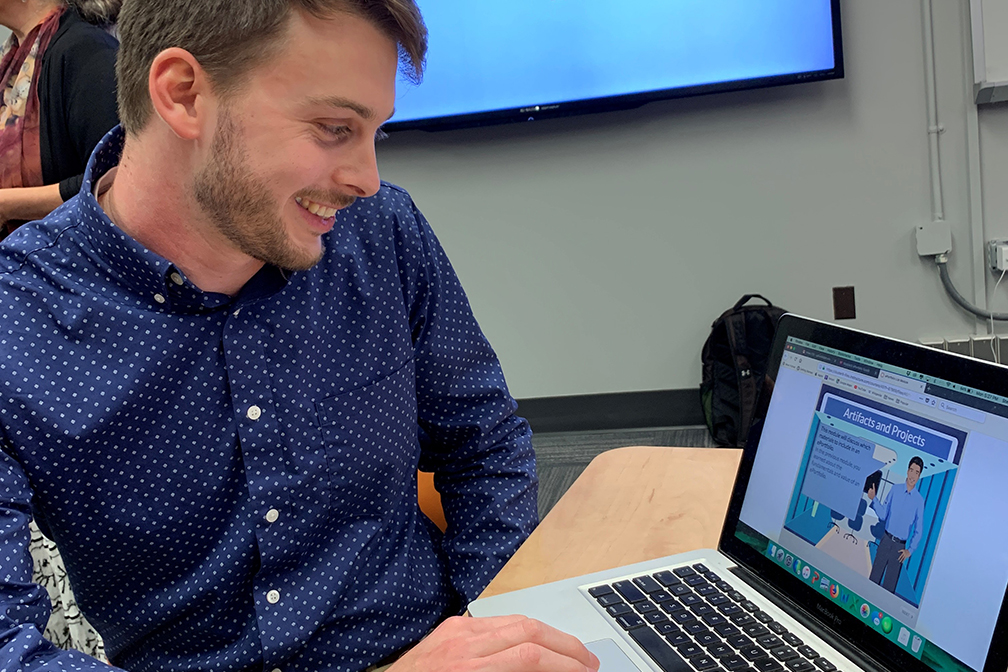Graduate Students Create Online Class to Help Others Succeed
December 11, 2018

Stephen Dixon, a December 2018 graduate of the master of arts in instructional design and technology program in the Virginia Tech School of Education, demonstrated how to work through his online module about what artifacts and projects to include in an effective career-focused ePortfolio.
“There are different avatars that teach you about what to put in your ePortfolio,” said Dixon. “The background changes, too, to fit the script. The module also introduces case studies so the student can help people figure out what should be included in their ePortfolio. This type of interaction with the online characters fuels confidence and helps the student gain success in that subject.”
Dixon and four of his fellow classmates in the Distance Education class worked together to transform an in-person course about ePortfolios taught by University Libraries Instructional Design and Training Manager Miguel “Miko” Nino to a five-module online interactive learning experience.
Visiting assistant professor in instructional design and technology Alicia Johnson wanted to provide an opportunity for her students to do something authentic. That’s when she approached Nino with her project idea.
“I recently attended Miko Nino’s ePortfolios face-to-face class and asked him if he would be interested in an online version of his course,” said Johnson. “He said ‘I really can use this!’ and I was excited.”
Dixon said this was one of the most hands-on projects he’s done in the instructional design program.
“When I used to think of instructional design, I thought of traditional class instruction,” said Dixon. “This class helped me break away from my traditional way of thinking and prepared me to create online content for students around the world.”
Students in the Distance Education class worked directly with Nino, the subject matter expert.
“Working with a subject matter expert was new to most of us,” said Dixon. “The course material already existed so we could put most of our efforts in scripting the course and incorporating the graphics, avatars, and backgrounds to keep the students engaged and interested in the material.”
“It’s very rewarding to watch these students develop from just learning about online instruction design to being full instruction designers with confidence in their skills and knowledge,” said Nino.
“Rigorous and effective instruction happens online,” added Miko. “Throughout this project, the student designers chose active learning in which the participant engages with the program and receives instant feedback. I witnessed the students’ growth over the last 15 weeks of working on this project. They are ready to do this professionally.”
Dixon has worked in videography as a graduate assistant in the Virginia Tech athletics department. He sees the lessons he learned through this project being applied to training and development in a videography office.
“Videography is very technical. I can see using these skills to help student workers learn the technical side of video and get up to speed to be comfortable with the equipment,” said Dixon. “I can help students do well and be successful with a program like this. I can make a difference.”







